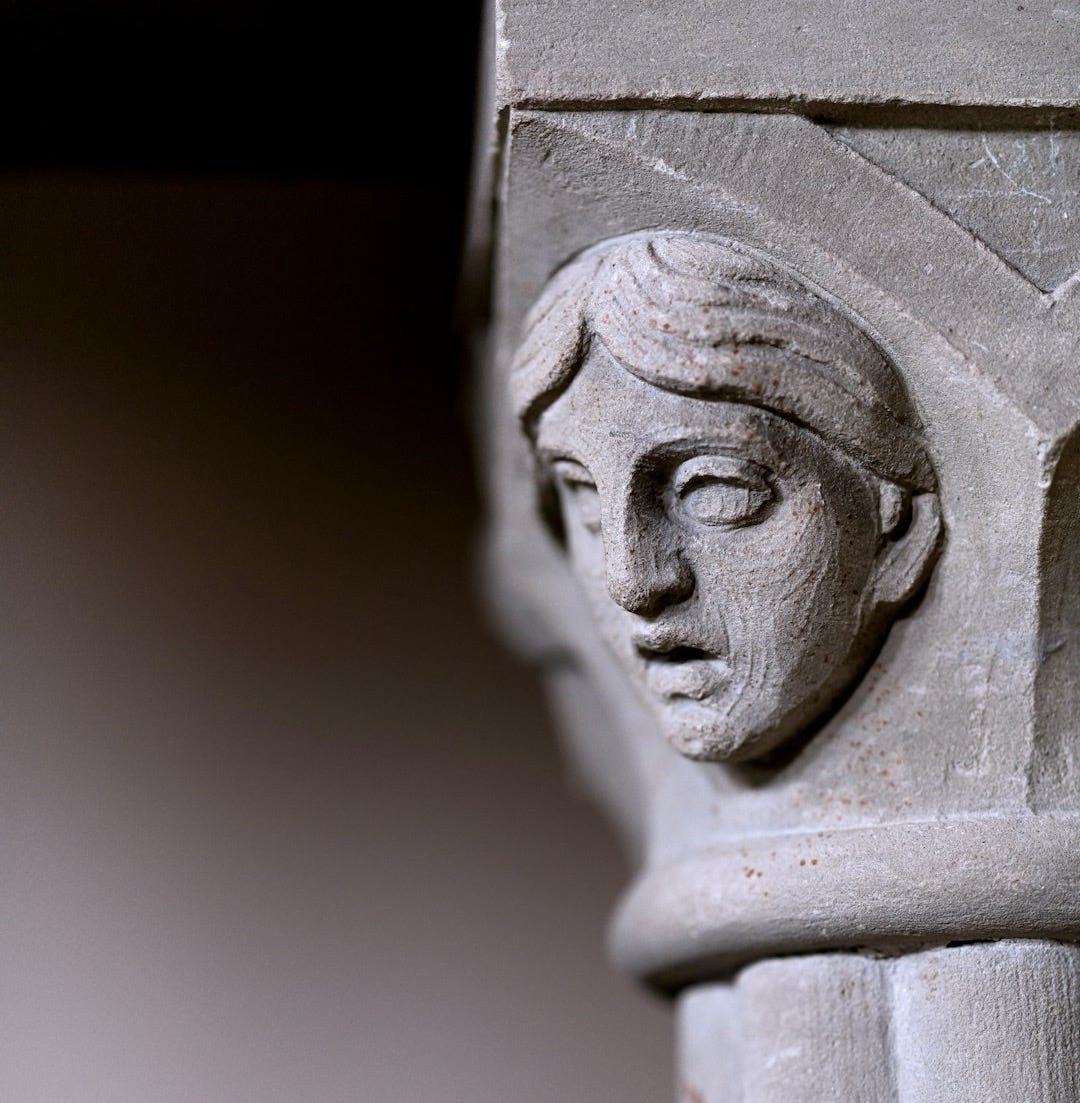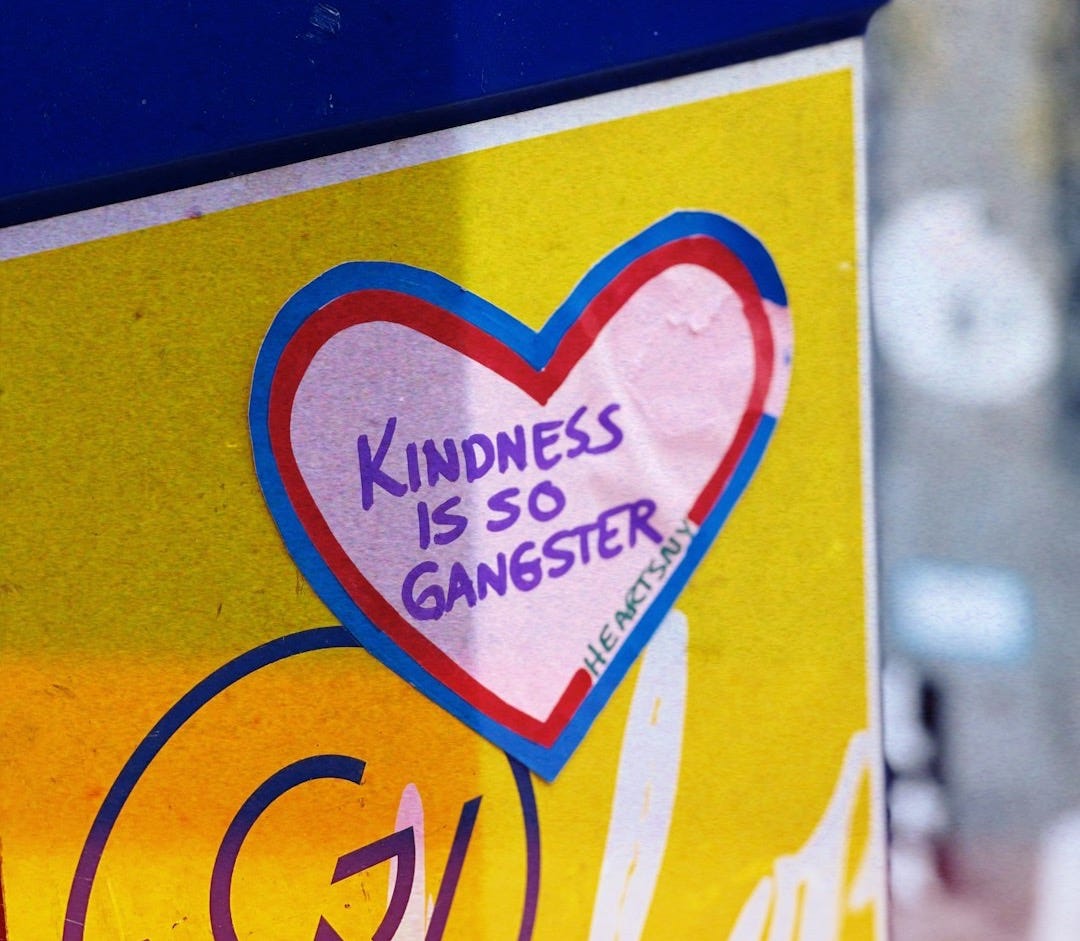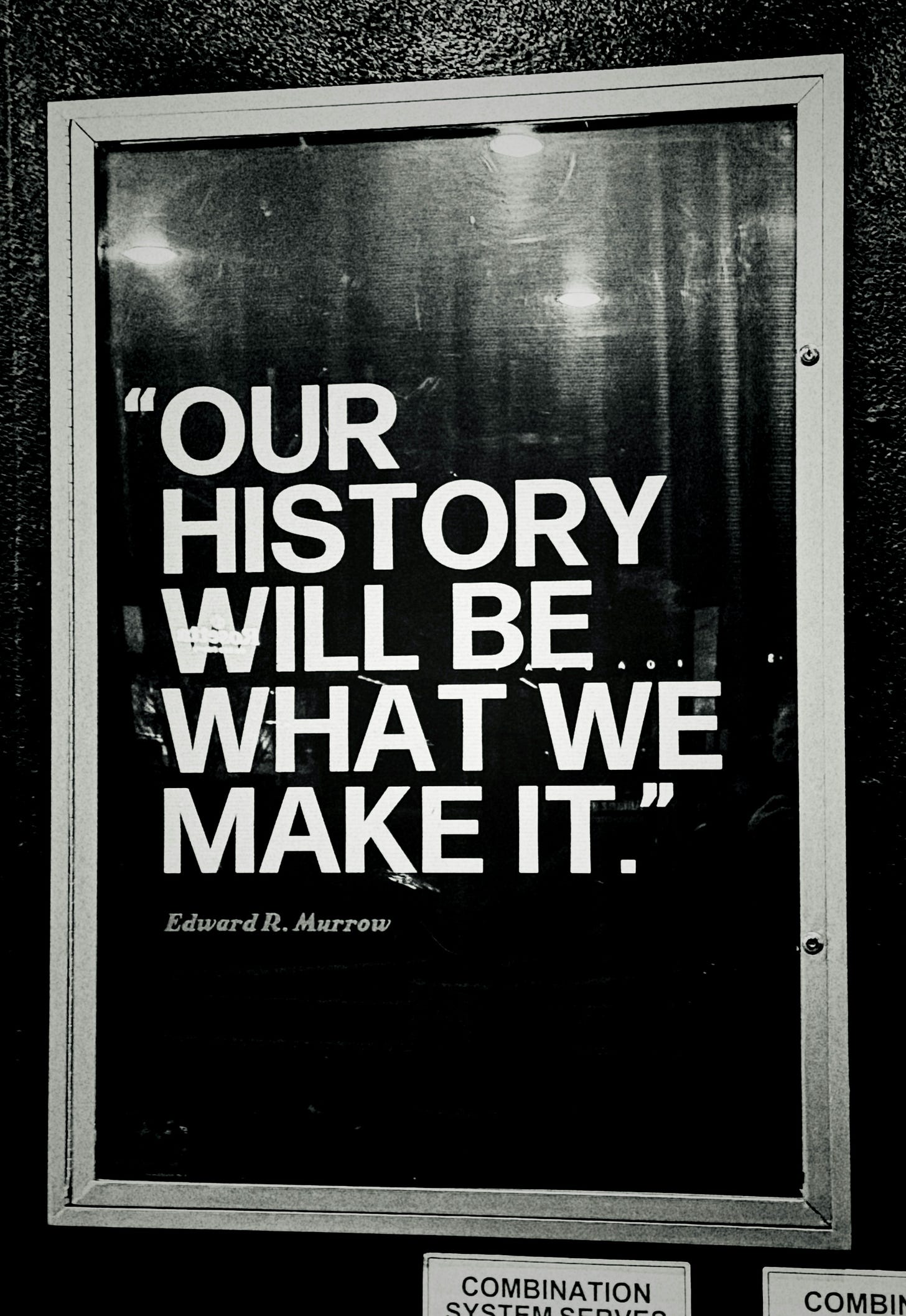Fight Your Fear With Fire - Undividing #30
The world is burning. I have grave fears. But I'm doing something with them.
Welcome to Undividing where we are reconnecting a divided world

Hey there everyone,
What a week it’s been. How much has changed. I suspect a lot of you are trying to process the sheer volume of conflict going on in the world right now.
And maybe like me, feeling unable to. We’re actually not designed to process this much global conflict in real time, our nervous systems aren’t built for it.
When I sat down to write Undividing this week, none of the drafts in my folder were speaking to me. I started and stopped on three different topics.
So this week, I’m just going to write something from me to all of you. About our world. About the overwhelm and fear that I have everyday when I open my eyes. And if you’re feeling this too, you’re not alone, and you’re not crazy.
And also I want to talk about how we’re supposed to undivide this tidal wave of conflicts, wars, divisions, ecological disasters, and sheer madness all around us. Or at least not give up on the idea that we can.
Also, I want to say this at the start. I’m not condemning any country, party, political system, or religion in this piece. Undividing is about trying to bring all these disparate viewpoints to sit together and figure it out. Instead, I’m writing from the point of view of a single human who is watching all of these forces clash up against each other and wonder how much of this can we and the planet can stand.
This week I want to talk about these feelings, and where we can put them where they’ll make a difference.
And if you know a friend who needs to hear something like this, pass it on.
So, let’s get undividing…
How the world can change in a week
Erik and I were sitting in an outdoor bar in Rome on our holiday, drinking Aperol Spritzes, looking at the sumptuous view of the old town. Patina walls in changing orange and red hues stretched out before us, punctuated by domes and ancient buildings, vines crawling up over everything while a fountain trickled musically in the background. All in 35 degree weather, pretty warm for this time of year. It was postcard perfect.
“This feels weird,” Erik said.
“How do you mean?” I asked.
“The world’s on fire, and we’re here drinking cocktails.”
We sat in silence for a while. Then started making a list of the last seven days.
The Middle East conflicts all escalating. The No Kings marches vs The Military Parade in the US. The expanding Russian-Ukrainian war. The Thailand/Cambodian border. ICE raids. Los Angeles. That’s not even close to a complete list.
Then we started talking about the rise of the far right globally. Rights of women and minorities being wound back everywhere. Refugee crises all over the world. Kabul being the first city to officially run out of water. Europe re-arming. A devastating plane crash in India.
And that’s all on top of ongoing layoffs worldwide. AI replacing people. Apple’s findings that AI isn’t working the way we thought it was. The dehumanization of our lives through automation (when was the last time you spoke to a human on the phone in customer service?). Cost of living. Breakdown of infrastructures. No corporate responsibility taken.
Soaring summer-level temperatures globally while we’re still only at the end of Spring. Cities prepping best they can for heatwaves. Exploring deep sea mining when the icecaps are melting.
Then Erik and I talked about personal things in our own worlds; parents, careers, health, savings.
Then we sat in silence for a while longer. Surrounded by beauty. Full of dread.
That night in bed, we held each other a long time before we went to sleep. We both had nightmares.
The word you’re looking for is “Weltschmerz.”
It’s a German word meaning literally “world-pain/world-ache.” That feeling we’re all having, the Germans gave it a name. They validated it. It’s actually even seen here as a condition, something separate to depression.
When I heard “Weltschmerz” the first time I latched onto it. I needed it.
It was first coined by Jean Paul in his 1827 novel Selina, to describe the realization that the world cannot live up to our inner hopes and ideals. A melancholic, philosophical weariness.
But these days, I hear Weltschmerz used more in terms of the physical world’s brokenness. If you’re feeling it though, you’re not broken. You’re not failing. You’re paying attention.
Because part of the pain in Weltschmerz is helplessness. That these large scale events we are tracking daily that are wildly out of our individual control—their vastness contributes to the despair. Lots of people are very scared right now. Including the people we think of as enemies.
But the fact that the word is that old, means something else. This feeling isn’t new.
We’ve been here before
History is filled with moments that must have felt like our present to the people who were living through them. Even just under the roof of my own house, I heard my parents talk about the 1960s–70s: assassinations, Vietnam, Cold War terror, social fracturing.
My parents lived through a time in Australia where Protestants and Catholics wouldn’t intermarry. JFK’s assassination felt like nothing would ever be right again. My father missed being conscripted for the Vietnam war, but my uncle was drawn for it, only being forgiven on account of his poor hearing.
They both thought the world was going to go up in a nuclear ball of flames in their early twenties. I thought the same in the 1980s when I was in high school.
My early adulthood was spent in a community decimated by a disease that most people thought we deserved. The spectre of death lurked all through those formative years of my life. And whatever your feelings about Covid and vaccines, it showed that the world could mobilise scientific research when it wants to. When I turned 50 I was hit with the realisation that I never thought I was going to make it there.
Post 9/11, the early 2000s were an era fraught with a massive global restructuring where we all thought life could be over any tick of the clock. It was like all the tectonic plates of how we understood the world reshuffled under our feet.
And then last week. And then there’s today.
Here’s the thing I realised this week in a meditation. The world is always on fire. Sometimes the flames are higher. Yet people build anyway. Dance anyway. Hold each other anyway. And protest anyway.
And if you wind the clock back through the flames, you’ll see that there was WW2, WW1, suffragettes, slavery, apartheid and so on and so on. Yet we always survived it.
How? By the actions of regular people.
Who changes the world? We do. We always have.
Someone I’ve been reading a lot of lately is a guy called Rutger Bregman. He was recommended by two Undividing subscribers for two different books. A best-selling author, speaker, thinker, he’s even started The School for Moral Ambition to rescue do-gooders from corporate jobs, to train them and use their skills to tackle the biggest challenges we face as a planet.
I’ve listened to a couple of his interviews, and what he says gives him hope, is history. The continual actions of people who rise to the occasion and lead. Again you may have thoughts about the people on this list. But it’s what they were and what they became that I’m pointing out here.
Nelson Mandela and Gandhi were both lawyers. Rosa Parks was a seamstress. Angela Merkel was a quantum physicist. Harriet Tubman was a slave. Lech Walesa was a shipyard electrician. Wangari Maathai taught veterinary science. Muhammed Yunus who invented micro banking worked in his family jewellery store.
Ordinary people living ordinary lives who then did extraordinary things.

But why we know these people’s names, is because of the millions of names of people we will never know who followed them. Who walked off the buses, who sat in silent protest, who protested for freedom. Who did a million tiny actions that added up to the movements led by the people who are household names.
Who at one stage we’re all probably feeling like we’re feeling right now.
Rebellion begins with a reframe
I want to tell you now about how I think of terms that I get dragged for by some folks on Substack and many more on other social media channels when I post about them. Because they aren’t just terms to me. They are tools of change.
Connection is an act of rebellion. When the systems are designed to keep us divided, connection is no longer a fridge magnet sentiment. It’s defiant.
Kindness is a radical act when indifference and numbing out has become the default to survive the overwhelm of everyday.
Being human and reaching out when everything is automated and impersonal, is a revolution.
And here’s the biggest one which I spoke about in the last Undividing Live :
“Undividing is not about winning someone to your side, or about being convinced to join someone else’s side. Undividing is disagreeing with someone but still staying in conversation with them. And that for both people it’s ok to not see eye to eye, but to still sit side by side.”
Undividing is not about winning. It’s about working together, despite everything.
Put out the fire closest to you
In Australia, bushfires are a part of everyday life most summers. And what I used to hear on the radio as a kid was how the greatest tactic was to “firebreak.” That’s lighting a smaller fire to burn off parts of the bush, so that when the larger fire arrives, it has no fuel to burn.
It also gives people a way to fight back against bushfires that otherwise would surely overwhelm them and burn everything down.
Same thing with people. Everything burning in the world can only keep burning if it reaches folks who are angry, hurt, oppressed, and afraid.
The other fire related thing I want to introduce to you is a Czech saying, "Nehas, co tě nepálí" which means don’t put out a fire that isn’t burning you - another way of saying “mind your own business.” But the translation I was told first was “put out the fire closest to you.” Which I took to mean, “fix what’s in front of you.” That’s not correct Czech. But it’s very useful as a reframe. Meaning, you can’t put out the fire all the way over there. But you can douse the one at your feet.
So when I feel Weltschmerz and find myself swimming in a pool of fear, despair, and hopelessness, I take that reservoir and turn on the firehose.
And I douse the fire closest to me that I can actually do something about.
So can you.
It doesn’t have to be something in the headlines. It can be the smallest act. Call a friend for no reason. Volunteer at a shelter. Donate to causes you believe in. Do kindnesses for strangers. Send birthday cards. Write Substacks. March. Check in with your neighbours. Have an open door at work. Help a colleague.
Find the thing that’s in front of you. Just because you can. It not only helps the folks that benefit, it helps you feel that you’re doing something. However small. It has meaning. It has value.
These things add up. They ripple forth. They firebreak against a burning world.
Because it’s also not just about dousing the flames. It’s about watering each other as well.
Could we be the generation who don’t repeat history?
Something that my detractors often say is that we fight because we are ape brained. That conflict is hard wired in us. That all I do I write “journey porn” as some have called it.
I hear that. But also, unlike other animals, we are sentient of our nature. We ponder it, we write about it, we analyse it, we make art about it, we go to therapy. Which apes don’t do.
Given that, I think we have the opportunity everyday to say, ok, I feel that instinct. But I’m going to leapfrog it, and turn it into something that helps someone else instead.
I honestly think that this is how we don’t repeat our histories again and again and again.
Connection, kindnesses, and humanity. These are the tools that solved every crisis in a way that didn’t sow the seed for future conflicts.
So if you’re feeling it this week, like I am, where we seem close to the brink again, you can numb out from it all. Which I understand. Or you can ask yourself a few questions.
What’s the fire closest to you? What connection, kindness, or humanity could douse those flames? What could water a fellow human who is going through it just like you?
Because when I do this, or receive it from someone else, I always feel that whatever our disagreements, we are worth fighting for.
Let me know in the comments how you’re doing this week.
How can you support Undividing?
Like, comment and restack! It all helps the algo push Undividing into people’s feeds.
Have you learned anything in Undividing that’s helped you in your life? Given you a new perspective? Helped you feel connected to the good in all of us? If so, consider taking out a paid subscription. If we can get to a 100 paid subscribers, the algo will supercharge Undividing and get that feeling you’ve had to more people here.
You can also Buy Me A Coffee. I post you back a personal 30 sec video for any donation, any size. (Ignore the BMAC amount prompts, you can enter any amount)
You can also support by picking up a copy of my award-winning book How To Burn A Rainbow, the story of how my divorce set me off on a journey - a riches to rags rollercoaster from LA to Berlin where I had to lose it all to find myself.
And that brings us to the end of Undividing #30.
Till Thursday when we do the next Emotions Diary, let’s move through this world undividing, and see what this planet can do.
Karl






This is really beautiful and helpful. I am a high school teacher and I am continually attempting to put out the small fires around me. I’m trying to really “see my students” and help build a small community in my classes. It doesn’t feel like enough sometimes, but is what is mine to do. Thanks for your writing.
This is a beautiful piece of writing, Karl, and I'm very glad none of your other drafts spoke to you this week. Thank you for putting into words principles and ideas that I have lived my life on but didn't know how to name. I've been an undivider as long as I can remember but in the past few years it's started, for the first time, to feel like a radical take.
The first time I remember the 'world on fire' feeling was in elementary school, doing some drill of getting under our desks in case of nuclear war. I remember thinking, first, getting under our desks does nothing, and second, I cannot do one thing about this. Maybe that's where my deep belief in focusing on my local community and doing small things came from.
I also remember studying in France in my college years, and hearing stories of the ways people found to have moments of joy and community even during the war. Somehow today there's a philosophy that when bad things are happening, it's immoral to be joyful in any way.
With roving gangs of online bullies now being the norm, I appreciate the courage it takes to speak out.